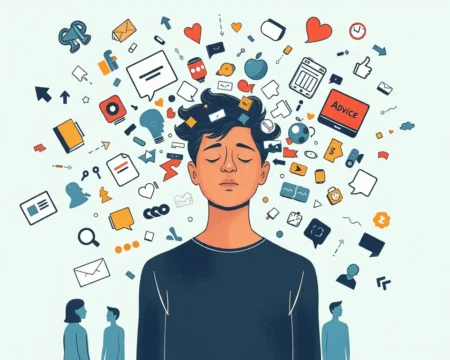Northeastern University Study Highlights the Importance of Peer Support in Opioid Recovery
A recent study by Northeastern University has revealed a significant link between participation in self-help groups and successful completion of opioid addiction treatment. The research, published in a peer-reviewed journal, demonstrates that individuals who combine medication-assisted treatment (MAT) with self-help group attendance are substantially more likely to complete their treatment programs. This finding underscores the critical role of peer support in addressing the ongoing opioid crisis, which continues to claim lives and strain healthcare systems across the United States.
The Power of Peer Support in Addiction Recovery
Self-help groups offer a unique platform for individuals battling addiction to connect with others who share similar experiences. This sense of community and mutual understanding is invaluable, providing a safe space where individuals can openly discuss their challenges, share their victories, and find encouragement from their peers. Unlike traditional therapy settings, these groups are driven by shared experiences, fostering empathy and reducing the isolation often associated with addiction. This peer-driven support system has proven to be a powerful tool in promoting lasting recovery.
Key Findings of the Northeastern Research
The Northeastern University study analyzed data from the Substance Abuse and Mental Health Services Administration (SAMHSA) spanning from 2015 to 2019. The dataset included nearly 158,000 patients receiving treatment for opioid addiction. The findings showed a striking difference in treatment completion rates:
- 51% of patients who attended self-help groups completed their medication treatment.
- Only 19% of patients who did not participate in self-help groups completed their treatment.
This 25% increase in treatment completion rates when self-help groups are involved underscores the profound impact peer support can have on recovery outcomes. Researchers also noted that combining medication with support groups makes patients over 25% more likely to finish opioid addiction treatment. The study’s lead investigator, Muhammad Noor E Alam, a professor of mechanical engineering at Northeastern, emphasized the importance of this finding, noting that while medication is effective, premature discontinuation can lead to a higher risk of overdose.
How Self-Help Groups Facilitate Recovery
The study’s findings align with a growing body of research demonstrating the efficacy of self-help groups in addiction recovery. These groups provide numerous benefits:
- Reduced Isolation: Addiction often leads to feelings of isolation and shame. Self-help groups create a supportive environment where individuals can feel understood and accepted, reducing the sense of being alone in their struggle.
- Positive Reinforcement: Seeing others who are successfully navigating recovery can be incredibly motivating and inspiring, offering tangible evidence that long-term sobriety is possible.
- Accountability: The group dynamic fosters a sense of mutual accountability, encouraging participants to stay committed to their recovery goals.
- Structure and Routine: Regular meetings provide a consistent touchpoint for members, helping them maintain a routine and reinforcing their commitment to sobriety.
- Emotional Support: Recovery is not a straightforward journey. Self-help groups offer a space where individuals can express difficult emotions like fear, hopelessness, and sadness, helping them make sense of their feelings and find solutions.
- Improved Coping Skills: Self-help groups help individuals develop alternative ways to cope with triggers and negative emotions such as anxiety, anger, boredom and depression.
Self-Help Groups and Medication-Assisted Treatment (MAT)
Medication-assisted treatment (MAT) is a cornerstone of opioid addiction treatment, utilizing medications like buprenorphine, methadone, and naltrexone to reduce cravings and withdrawal symptoms. While MAT is effective, adherence to treatment can be challenging. The Northeastern study demonstrates that integrating self-help groups into MAT programs can significantly enhance treatment retention and completion. This suggests that a combined approach, addressing both the physical and psychosocial aspects of addiction, is most effective in promoting long-term recovery.
However, some traditional self-help groups may not be fully aligned with MAT, promoting a medication-free approach. This can lead to some individuals on MAT feeling excluded. It’s important to create inclusive environments that support all pathways to recovery.
Relapse Prevention and the Role of Self-Help Groups
Relapse is a common challenge in addiction recovery. Self-help groups play a crucial role in relapse prevention by providing ongoing peer support and a stable environment conducive to long-term sobriety. Regular participation in these groups reinforces coping strategies, promotes healthy lifestyle adjustments, and helps individuals maintain their commitment to recovery.
- Identifying Triggers: Relapse prevention plans often include identifying internal triggers (thoughts, emotions, behaviors) and external triggers (people, places, situations) that could lead to substance use.
- Developing Coping Skills: Self-help groups assist individuals in creating personalized plans to intervene when relapse triggers are activated, such as reaching out to a sponsor, going for a walk, or meditating.
- Promoting Self-Care: Mind-body relaxation techniques such as yoga and mindfulness meditation are useful for managing stress and cravings.
- Normalizing Setbacks: While relapses are common, recognizing them as part of the recovery process rather than a sign of failure is crucial. Self-help groups offer a safe space to navigate these setbacks.
Policy Implications and Future Directions
The findings from the Northeastern study and others have significant implications for policy and practice:
- Integrating Self-Help Groups: Policymakers should consider integrating self-help groups into opioid addiction treatment programs. A bimodal approach combining MAT with self-help groups should be promoted to ensure improvement in treatment retention and outcomes.
- Addressing Disparities: Research indicates that the association between self-help group participation and treatment completion is especially strong among Black men. Further efforts are needed to understand and address disparities in access to and engagement in self-help groups.
- Promoting Inclusive Environments: Self-help groups should be inclusive and welcoming to all individuals, including those on MAT. Addressing the perception of exclusion can help encourage participation.
- Future Research: More research is needed to understand how to improve group therapy for substance use, given its prevalence in treatment centers. Studies examining the combination of medication treatment and self-help groups can further improve outcomes and reduce the public health burden of opioid addiction.
Conclusion
The opioid epidemic continues to be a major public health crisis, and effective treatment strategies are critical to saving lives and preventing further devastation. The evidence is clear: self-help groups are an essential component of successful opioid addiction treatment. By fostering a sense of community, providing peer support, and promoting accountability, these groups empower individuals to achieve and maintain long-term recovery. Integrating self-help groups with medication-assisted treatment offers a comprehensive approach, addressing both the physical and psychosocial dimensions of addiction. As we move forward, it is imperative to recognize the valuable role that peer support plays in recovery and to ensure that all individuals have access to these potentially life-saving resources.










